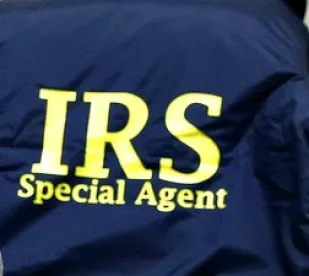The Coronavirus Aid, Relief and Economic Security Act, or CARES Act, provides tax relief to taxpayers in certain situations. Some of these provisions may generate refunds for prior years, such as the relaxation of restrictions on the use of net operating losses (NOLs) and interest deductions as well as the retroactive availability of additional depreciation related to qualified improvement property. For our prior discussions of these, and other CARES Act provisions, see here.
Naturally, it would be beneficial to taxpayers to obtain such refunds to increase cash liquidity during the COVID-19 pandemic. Under normal circumstances, there are two ways corporate taxpayers can seek tax refunds: (1) filing an amended return; or (2) requesting a “quick refund” by filing Form 1139, Corporation Application for Tentative Refund. Normally, a corporate taxpayer must file Form 1139 within 12 months of the close of the taxable year in which the NOL arose. Then, the Internal Revenue Service (IRS) conducts a limited examination and generally makes the resulting credit or refund within 90 days.
Additionally, corporations can request a quick refund of overpayment of estimated taxes using Form 4466, Corporation Application for Quick Refund of Overpayment of Estimated Tax. Normally, this request must be filed by the return due date for the taxable year to which the estimated taxes relate, without considering any extensions. Thus, for corporate taxpayers on a calendar tax year, a request for overpayment of estimated taxes for the 2019 tax year must be filed by April 15, 2020.
On April 8, 2020, the IRS released a statement informing taxpayers that guidance is forthcoming on refund claims related to the CARES Act. The full statement is as follows:
The IRS is aware that there are questions from practitioners and taxpayers on the filing of corporate and/or individual refund claims that may be available under the Coronavirus Aid, Relief, and Economic Security Act (CARES Act). The IRS is currently exploring available options and expects to issue filing instructions in the coming days. The IRS recommends that taxpayers await further instruction before utilizing traditional processes. Additional information will be posted to irs.gov.
On April 9, 2020, the IRS released additional guidance with respect to NOLs. Notice 2020-26 allows a six-month extension for the period for filing a tentative refund claim for tax years beginning after January 1, 2018, and ending before June 30, 2019. This means that a taxpayer with a NOL arising in a 2018 calendar tax year will have until June 30, 2020, to file Form 1139 to make a tentative refund claim. This is an additional six months from the normal timing to file a “quick refund.”
Additionally, in Notice 2020-23, the IRS announced additional relief for taxpayers with respect to tax deadlines. This relief includes deferral of the deadline for filing Form 4466 in certain situations. For corporate taxpayers with return due dates between April 1, 2020, and July 15, 2020, without considering any extensions, the time for filing Form 4466 is extended until July 15, 2020.




 />i
/>i
